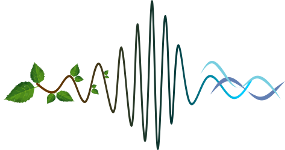Anthropogenic noise within marine ecosystems can generate physical, physiological or behavioral effects over marine fauna like mammals, reptiles, fish and invertebrates. These effects could vary according to the proximity and typology of the anthropogenic noise and have led to regulate underwater noise as a pollutant source. To correctly determine how noise and other variables can affect marine wildlife is necessary to have a monitoring methodology that works regardless of environmental conditions and that incorporates information collected from other environmental sensors or by human observers.
In this work we introduce a computational monitoring system called ACOUA (Acoustic Characterization Of Underwater Areas). This system allows the massive processing of acoustic records aiming at monitoring the long-term evolution of underwater noise levels and the characterization of acoustic events within marine soundscapes. The ACOUA system integrates database management, noise level monitoring and automatic event detection and classification algorithms with data mining and data visualization tools. At the same time, the system takes advantage of the synergy generated by complementing acoustic data with other data sources such as: meteorological variables (wind speed, precipitation levels, solar irradiance, etc.), marine traffic information obtained via automatic tracking systems (AIS receptors), water quality monitoring instrument (water temperature, salinity, conductivity, etc.), observations made by marine mammal observers, etc.
We also provide evidence of the system's efficiency to unveil correlations between noise fluctuations, biological and anthropogenic activities and environmental variables. Clearly, the obtained results point towards the advantage of combining soundscape recordings and environmental data to correctly evaluate the long-term impact of anthropogenic activities in marine ecosystems.
|
|
|
|
Wednesday
18
Noise II
› 14:00 - 14:15 (15min) › Rouelle Conference Hall
COMBINING SOUNDSCAPE RECORDINGS AND ENVIRONMENTAL DATA TO EVALUATE THE IMPACT OF ANTHROPOGENIC NOISE IN MARINE ECOSYSTEMS
* : Corresponding author
|
| Online user: 1 | RSS Feed |

|

 PDF version
PDF version